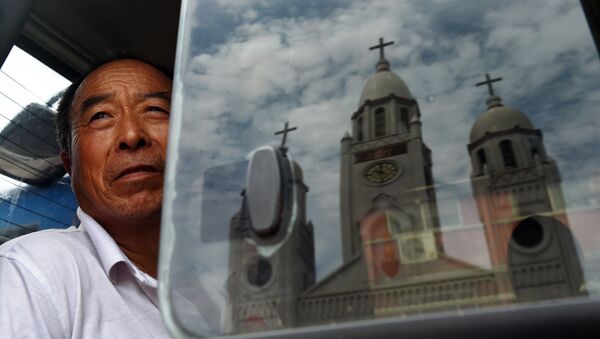The Rongguili Church, in Guangzhou, was raided at about 10 a.m. Saturday; the third prominent but unregistered Protestant church to be closed down by the Chinese government in recent days, the South China Morning Post (SCMP) reported.
"Halfway through the children's Bible class, we heard the footsteps of dozens of police and officials stomping up the stairs," an unidentified Rongguili church member said, according to SCMP.
"They read out law enforcement notices declaring our venue was an illegal gathering [that engaged in] illegal publishing and illegal fundraising and confiscated all Bibles."
Officials confiscated over 4,000 books in the church, in addition to other church property, as entry and exit points leading to the church were sealed off by police. Authorities recorded the identities of all worshippers, young and old.
"They then verified our identities again and warned us not to return [to the church], before letting us go," a church member said, cited by SCMP.
The church, founded by the late pastor Samuel Lamb Xiangao, is home to thousands of worshippers each week. All activities of the church are currently prohibited by authorities for violating the Religious Affairs Regulation. The notice, issued by the Yuexiu district ethnic and religious affairs bureau on Saturday, states that worshippers can freely attend and of 15 other registered Protestant churches in Guangzhou.
In what many of the international religious community are referring to as religious persecution, the crackdown by Beijing on unregistered churches is the widest in thirty years, according to reports.
In September, authorities shut down the 1,500-member Zion Church in Beijing. The 500-member Early Rain Covenant Church was closed last week. House churches in Henan, Zhejiang and Anhui provinces have also been shut down, according to multiple reports.
The US International Religious Freedom report for 2016, released by the US State Department on August 15 last year, criticized China's religious environment, saying that the administration of Xi Jinping continues to "exercise control over religion and restrict the activities and personal freedom of religious adherents" if they are perceived as a threat to the interests of the state or of the Communist Party of China.




